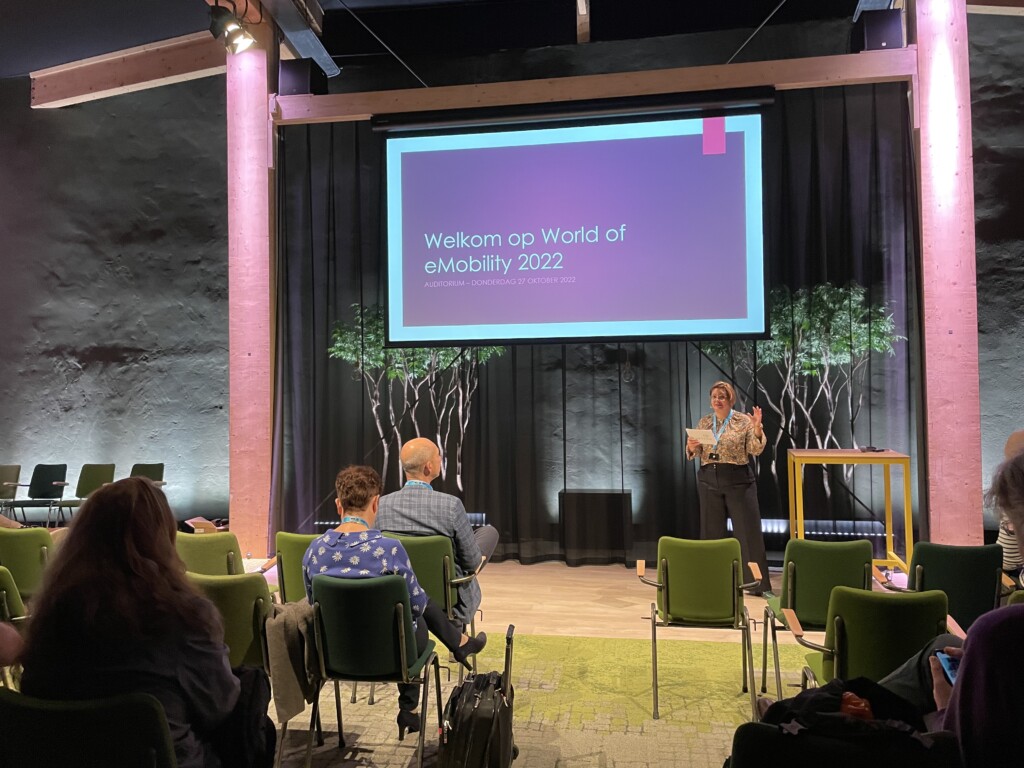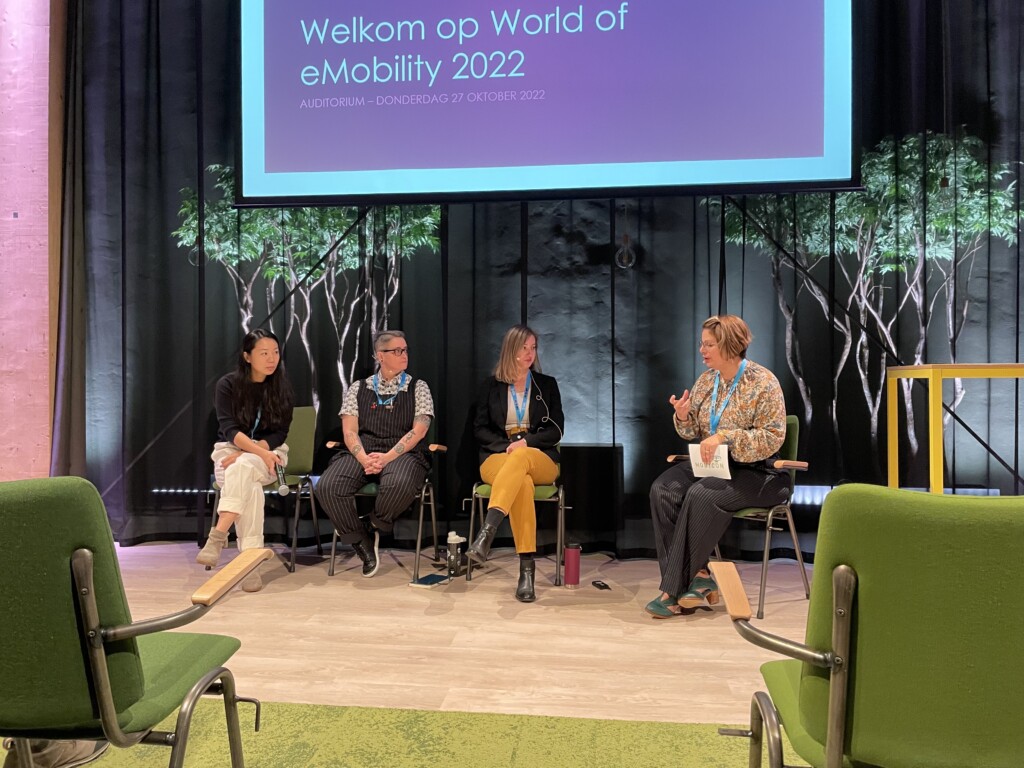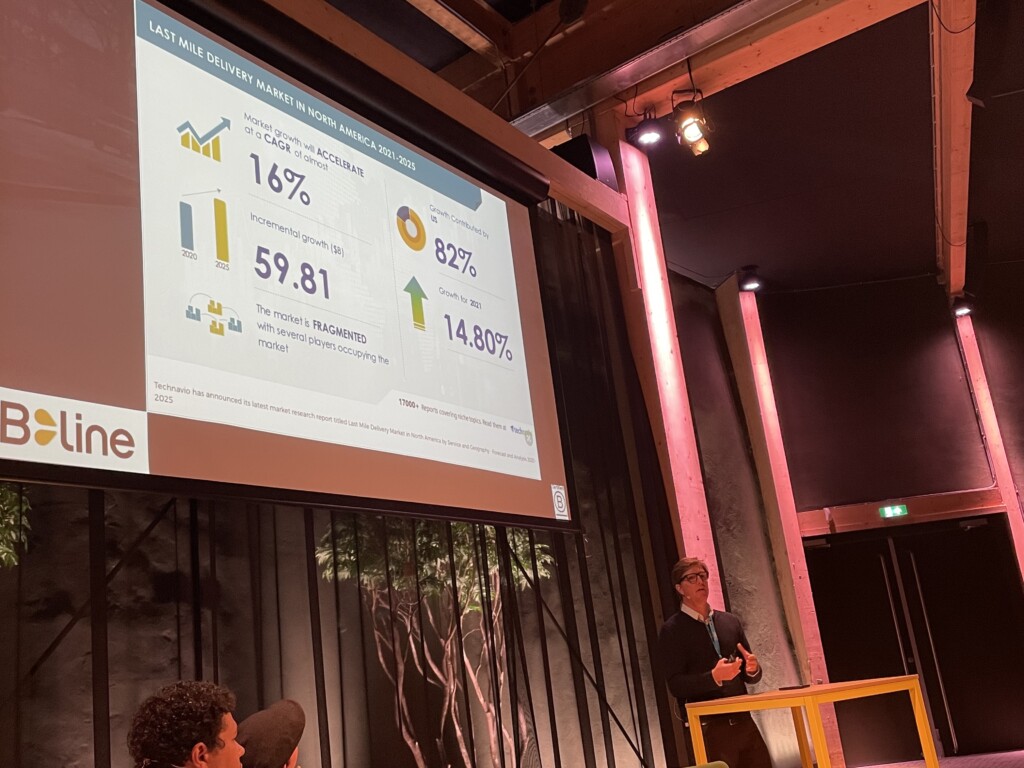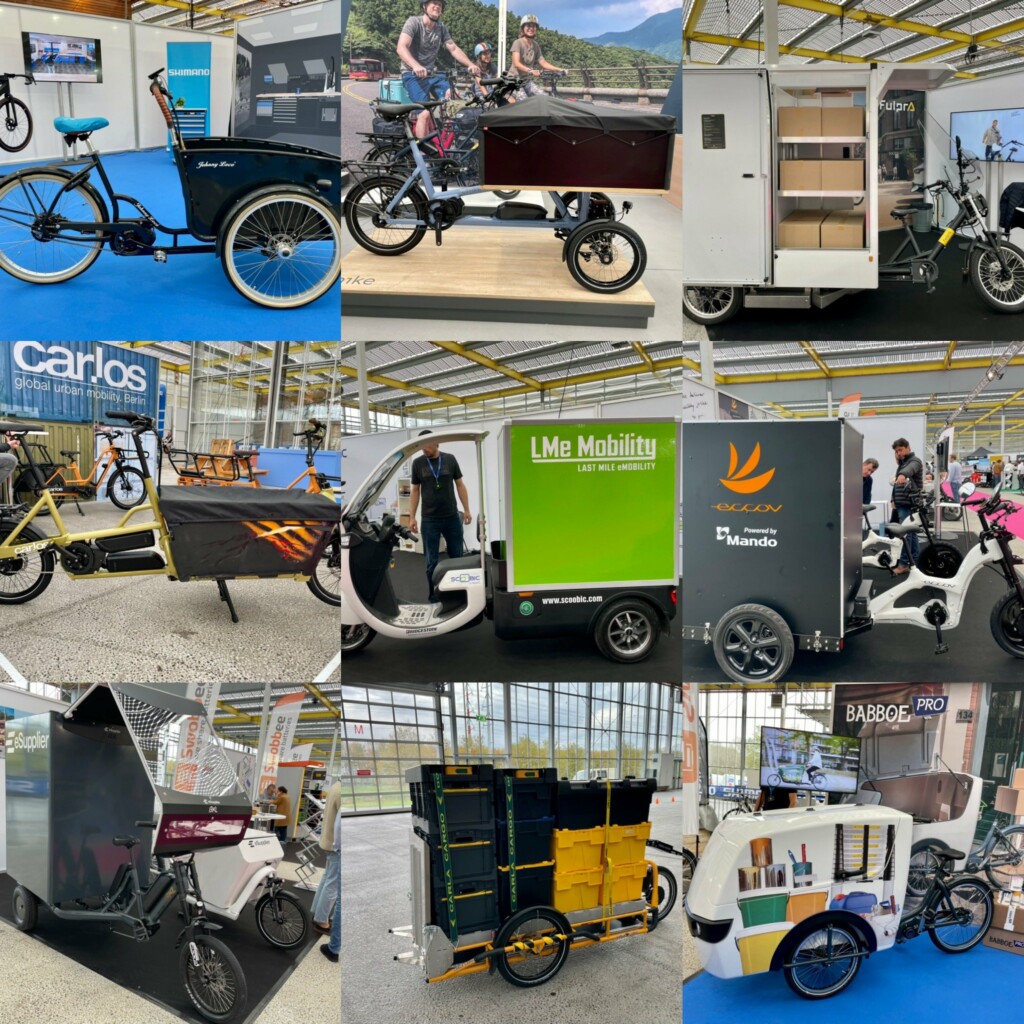Cycling / Mobility
International Cargo Bike Festival Summary
On October 27th-29th professionals and advocates came together for the International Cargo Bike Festival in Amsterdam. This year the conference was in coordination with the World of eMobility conference, indicating the increasingly important role cargo cycles play in the world of e-mobility. The conference organizers Jos Sluijsmans and Tom Parr declared the 2020s as the Decade of the Cargo Bike and this was evident after attending the conference. This year, International Communications Specialist Melissa Bruntlett hosted the conference and Mobycon was a sponsor of this event, as part of our effort to make the world less reliant on the car. Melissa Bruntlett and Anna Wyner share some short observations and takeaways from their experiences at the conference.

Melissa’s Reflections:
This year’s event was my third time participating in the ICBF Conference. Having participated as an attendee, speaker, and this year, as host, I have had the opportunity to experience the event from a number of perspectives. One this is certain: the sense of community within the cargo cycle folks was still strong. This year being the first live event since 2019, it attracted cargo cycle manufacturers, distributors, planners, and of course enthusiasts, from around the world, bringing with them renewed enthusiasm as we look ahead to a transition to more sustainable logistics and personal transportation.
There were many moments that stood out this year, but two in particular left an impression. The first was the enlightening panel discussion that opened the conference, featuring Natalia Tomiyama of Nüwiel, Sandra Rothbard of Freight Matters, and MJ Somerville of XYZ Cargo Cycles. All working in different areas of the industry, it was interesting to discuss the intersections of their relative experience, and how personal, professional, and logistics planning all complement each other when it comes to policy development, infrastructure design, and accessibility. As an all-non-cis male panel, it was also an important opportunity to remind attendees that diversity in this industry still has a long way to go. As MJ reminded everyone, “We need your help, because we’re tired.” Their call to action was met with applause, and lot of reflection for myself on my role in promoting the value of diversity in the cargo cycle industry.

At the close of day 1, a presentation by Zé Lobo of Transporte Ativo was eye-opening to the fact that the cargo cycle culture in Brazil is quite widespread. In the cargo cycle industry, it can be easy to forget that these often expensive and flashy machines in Europe and North American have more DIY counterparts in LATAM, African, and Asian countries. Ze highlighted how people use cargo cycles to support their way of life, delivering goods for businesses, running cycle-based businesses, and of course food delivery. For me, it was a humble reminder of what we can learn from other global cities as we attempt to get more European and North American cities looking towards cargo cycles for resilient, sustainable logistics options for the future of our cities.
Anna’s Reflections:
I was looking forward to attending the ICBF conference for two reasons: It was my first conference since COVID-19 and, being unfamiliar with the cargo cycle industry, I was excited to learn more about them. I left the conference feeling inspired and committed to the growth of cargo cycles.
My first takeaway was the role of e-cargo cycles in creating low-emission cities. Melissa kicked off the event by emphasizing the cargo cycle’s role in a just transition away from fossil fuels and towards a more sustainable mobility system. But as Sandra Rothbard of Freight Matters explained in the opening panel, “You can’t get to zero emissions without thinking about freight,” and urban freight is often forgotten when planning for low-emission cities. As Franklin Jones of B-Line described, the demand for delivery is skyrocketing in our cities and e-cargo cycles can replace many last-mile trips sustainably.

The next takeaway was the need for infrastructure for cargo cycles. With more cargo cycles on our roads, they need safe spaces to travel and be stored. Cargo cycles are larger and faster than human-powered bicycles, meaning that they take up more room on the cycle lane and have more kinetic energy. Cities like Amsterdam are trying to understand how to design their roads for the increased e-cargo cycle traffic and other modes of mobility, as their existing cycle lanes are over capacity. Storage of cargo cycles is an additional important consideration for safe infrastructure, but frequently forgotten about. Unfortunately, infrastructure is often left behind as it is easier to design a safe vehicle within the existing infrastructure than to create safe infrastructure, as Natalia Tomiyama of Nüwiel expressed.
The third takeaway was the diversity of the cargo cycle both in the vehicle designs and locations of operation. Manufacturers were able to showcase their vehicles at the trade show and attendees were able to test them out on the test track.

While I wasn’t able to attend all of the sessions, I was inspired by the diversity of locations from Brazil to Nigeria to South Korea, showing that cargo cycles are playing an important role all around the world. Yet, as the first panel pointed out, there is a need to diversify the image of cargo cycles as it remains an industry that is dominated by men.
The final takeaway was the potential of the cargo cycles as an equalizer and closing the gender mobility gap. Many cargo cycles are powered by an electric battery, allowing even users with less physical strength to work with them for longer distances in last-mile deliveries. In addition, due to increased carrying capacity and motorized batter, they allow women and families to easily transport children, groceries, and more while they complete their everyday errands in a sustainable way.

